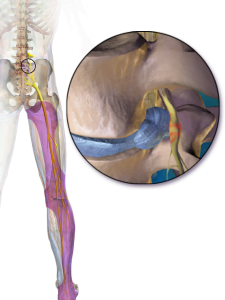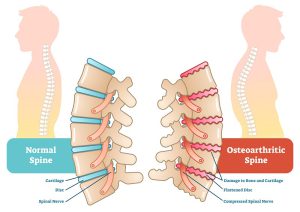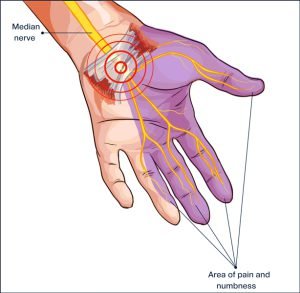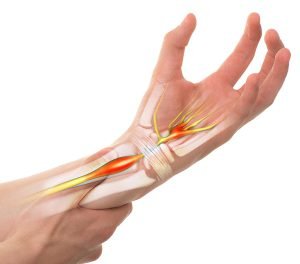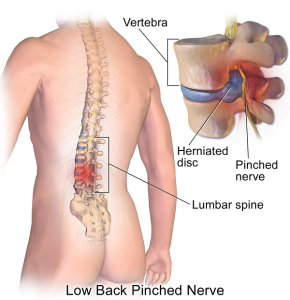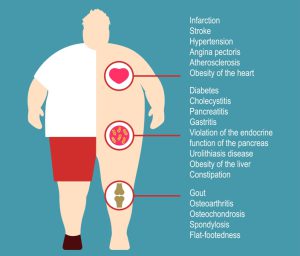Browsing: Pinched Nerve (Compressed Nerve) Graphics
Comprehensive Information, Resources, and Support on Pinched nerve (Compressed Nerve)
Sciatica is a kind of pain that radiates along the path of the sciatic nerve (longest nerve in the body). Sciatic nerve connects the spinal cord to the pelvis and legs. When too much pressure is applied to the sciatic nerve by its surrounding tissues, such as bones, cartilage, muscles or tendons, it leads to sciatica pinched nerve. Pinched nerve results in chronic pain, numbness, tingling or irritation, etc. Pinched sciatic nerve occurs due to degenerative spine condition, such as a herniated disc or a bone spur, spinal stenosis, spondylolisthesis, etc.
Can osteoarthritis cause pinched nerve? The answer is Yes. Trauma or a condition that causes bone thickening such as bone spurs can cause pinching of the nerve. Bone spurs can stiffen your spine as well as narrow the space where your nerves travel, thereby causing their pinching. Inflammation caused by rheumatoid arthritis can also compress nerves, especially in your joints.
The image shows a transverse carpal ligament compressed median nerve hand. The median nerve is located on the palm side of your hand (also called the carpal tunnel). Carpal tunnel syndrome can occur in one or both the hands. Women are more likely to develop carpal tunnel syndrome (CTS) than men. It is most frequently diagnosed between the ages of 30 and 60.
Carpal tunnel syndrome is a condition that is caused by the compression of your median nerve at the wrist. When the median nerve is compressed, it causes pain, numbness, and weakness affecting the hand, thumb, index, and middle finger, generally. Carpal Tunnel Syndrome is a common complaint presented to chiropractic offices.
A pinched nerve (also called compressed nerve) is the name given to the sensation, pain, or numbness that is caused when increased pressure on a nerve leads to irritation or damage to a peripheral nerve. The pressure can dveelop when a disc, bone, or muscle places increased force on the nerve. Most cases of pinched nerves go away on their own. There are certain things you can try at home. (Image source: Blausen.com staff )
Obesity is a common problem which causes diabetes, heart disease, high blood pressure, stroke, gallbladder disease, fatty liver disease, infertility, etc. Pinched nerve or spinal cord compression, in some cases, occur due to excess body weight. Due to obesity, strain increases on the neck and back which accelerates spinal deterioration and leads to herniated discs and spinal osteoarthritis. Stress due to obesity on the spinal facet joints results in development of arthritis and bone spurs, which can cause a pinched nerve.
ADVERTISEMENT




